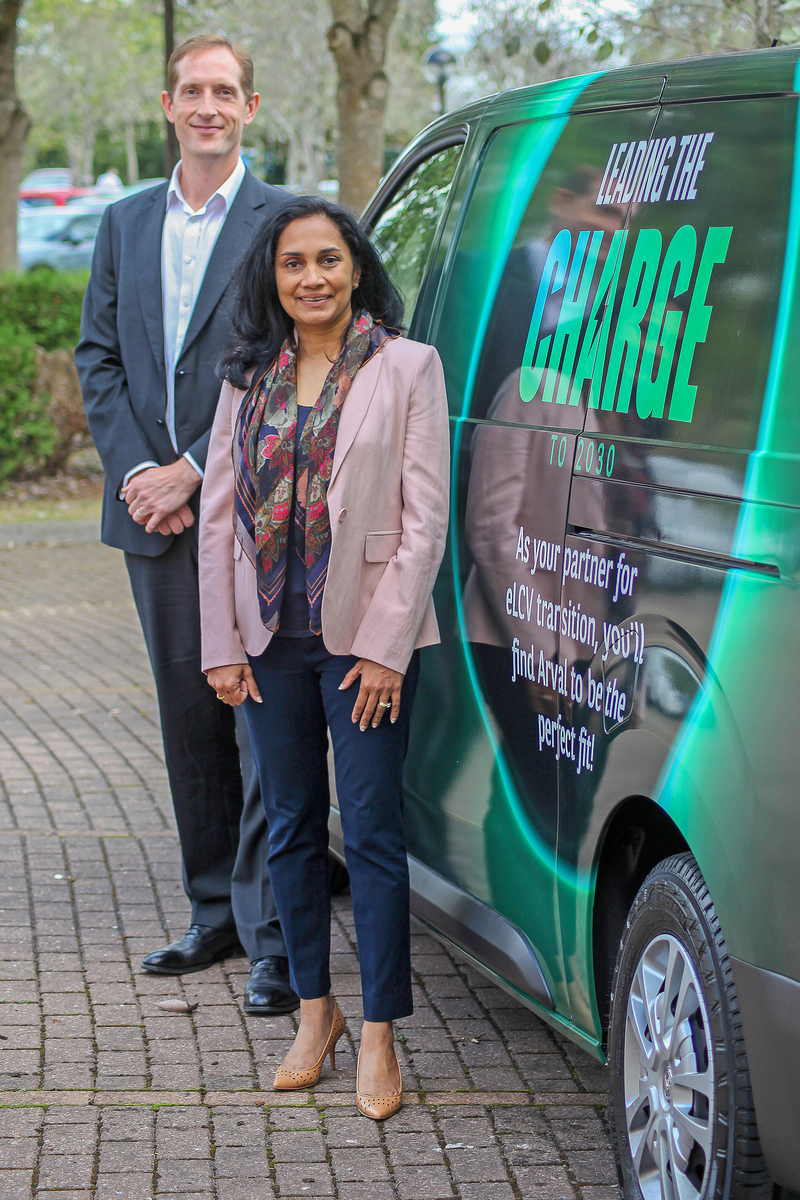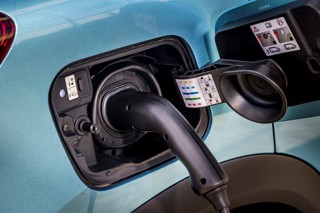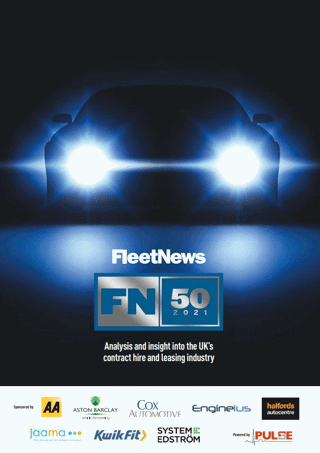Arval likes to know its place: within minutes of meeting new UK managing director Lakshmi Moorthy (pictured) and commercial director Paul Hyne at its Swindon head office, chat turns to the then imminent release of the FN50 listing of the UK’s biggest leasing companies.
Has Arval consolidated its place in third position, seized from LeasePlan last year, they were keen to know? The answer is yes – it’s one of six top 10 companies to grow funded fleet size year-on-year – although no secrets were revealed to the pair ahead of the official announcement which, at the time of the interview, was still six weeks away.
It was the same with Moorthy’s predecessor Miguel Cabaça and, before him, Benoit Dilly. Over their eight-year tenure, Arval UK accelerated from 85,000 funded vehicles to 179,000 through a combination of the GE acquisition and organic growth. It rose from number five to third.
That’s not to say Arval’s leadership team spends its time obsessing about figures; the interest in the FN50 is genuine, and the eagerness stems from wanting to compare its performance against its nearest rivals. This is about much more than simply looking at numbers. For Moorthy, growth is a positive indication that the business is achieving its strategic objectives, which are tightly bound in one central pillar: customer experience.
“Customer experience is a key theme in the UK, and we focus on it in the various customer journeys, not just sales. Everyone has a role in it,” Moorthy says.
Moorthy was part of the leadership team which created Arval’s new global five-year strategy, which was revealed to the media in October 2020.
Dubbed Arval Beyond, it aims to transition the business into mobility services, with solutions for corporates, their employees, retail buyers and industry partners – reflecting a broader customer base and its changing requirements.
Arval likes to know its place: within minutes of meeting new UK managing director Lakshmi Moorthy (pictured) and commercial director Paul Hyne at its Swindon head office, chat turns to the then imminent release of the FN50 listing of the UK’s biggest leasing companies.
Has Arval consolidated its place in third position, seized from LeasePlan last year, they were keen to know? The answer is yes – it’s one of six top 10 companies to grow funded fleet size year-on-year – although no secrets were revealed to the pair ahead of the official announcement which, at the time of the interview, was still six weeks away.
It was the same with Moorthy’s predecessor Miguel Cabaça and, before him, Benoit Dilly. Over their eight-year tenure, Arval UK accelerated from 85,000 funded vehicles to 179,000 through a combination of the GE acquisition and organic growth. It rose from number five to third.
That’s not to say Arval’s leadership team spends its time obsessing about figures; the interest in the FN50 is genuine, and the eagerness stems from wanting to compare its performance against its nearest rivals. This is about much more than simply looking at numbers. For Moorthy, growth is a positive indication that the business is achieving its strategic objectives, which are tightly bound in one central pillar: customer experience.
“Customer experience is a key theme in the UK, and we focus on it in the various customer journeys, not just sales. Everyone has a role in it,” Moorthy says.
Global five-year strategy
Moorthy was part of the leadership team which created Arval’s new global five-year strategy, which was revealed to the media in October 2020.
Dubbed Arval Beyond, it aims to transition the business into mobility services, with solutions for corporates, their employees, retail buyers and industry partners – reflecting a broader customer base and its changing requirements.
It will sit alongside Arval’s traditional full-service leasing proposition.
The strategy is divided into four strands: 360-degree Mobility (shared services, micro-mobility, Mobility as a Service); Good For You, Good For All (EV/sustainability); Connected & Flexible (technology-based services); and Arval Inside (corporate partnerships to help develop products).
It’s an over-arching mandate which Moorthy is now integrating into her local plan in one of Arval’s biggest markets.
“There are some core elements which we align with, but adaptation and timing is decided locally,” she says.
“A lot of my role since I started has been about adapting those key elements from Arval Beyond, focusing on 2021, 2022 and later years.”
Moorthy describes the roadmap for the UK as “offers, customer segments and levers”.
She explains: “The ethos is we are good at company cars and contract hire and that will remain the backbone of our strategy, but we will evolve with changing customer needs and experiences.
“We have the highest penetration of electric vehicles (EVs) in our order bank of any Arval market. It aligns with the green agenda for COP26 and the Government, but also our company car customers who have to figure out how to make the transition to 2030. Electrification is the biggest opportunity for the leasing industry because we have a role to play (in supporting the transition).”
More than 40% of orders are for electrified models, according to Hyne, of which 70% are pure electric.
“We expect at least 34% of our total risk fleet will be battery electric and 21% plug-in hybrid or hybrid by the end of 2025,” he says.
360-degree Mobility
Sustainability isn’t simply about EVs; it is closely linked to mobility, which is where 360-degree Mobility enters the lexicon.
Moorthy says: “Companies don’t just want a company car for 5-10% of their employees; they want to offer all staff sustainable mobility.”
Several Arval countries are already offering a Mobility as a Service (MaaS) proposition, including multi-modal payment systems, and it will come to the UK in the next 12-24 months, but Moorthy’s immediate priority is salary sacrifice.
The Covid pandemic has made people more nervous about using public transport with some now reconsidering car schemes thanks to the increasing number of low-BIK EV options.
“Salary sacrifice ties everything in nicely and the pandemic has accelerated that trend,” Moorthy says. Arval UK has reported a surge of 280% for vehicles on its Ignition salary sacrifice scheme over the past 12 months, and nine out of 10 of these are electric. The company is also trialling e-bikes with 20 customers and has both car share and e-scooters in the pipeline as it moves closer to a full MaaS offering.
As part of its commitment to flexibility, Arval is working on a ‘try before you buy’ scheme for EVs. Moorthy believes it’s a low risk move as the vast majority of people who try an electric car do not want to go back to petrol or diesel afterwards.
Within the next 12 months, it will also launch an all-inclusive pay per month subscriptions service, enabling people to take a car for as little as one month and hand it back at any time with no penalties. It will come at a premium and will suit those who want complete flexibility.
“The key is sustainable mobility,” says Moorthy.
“Although there will be certain active roles where the car is essential, most employers will have to start thinking of the car as one part of a mobility offer. However, we do see it as staying an important part for a few years.”
Growth in funded fleet

That’s just as well, as Arval harbours considerable growth aspirations in the funded fleet sector.
By 2025, Moorthy expects to be “well over 200,000” in the UK, growth of between 10-20% on the size of business she has inherited.
For cars, growth will be three-pronged: leasing and salary sacrifice fuelled by EVs, PCH in the retail/individual/SME sector, and partnership opportunities with energy companies, utilities and such-like where Arval can offer leasing services to their employees and customers to facilitate uptake of EVs.
Hyne says: “We are seeing a renaissance in the company car. The shift to electric has stopped the decline and this year we have seen a return to the company scheme. Even within Arval employees, we have seen cash takers come back.”
This rebirth has seen cars maintain their 73% share of Arval’s funded fleet, but Hyne predicts vans will start to capture a greater slice due to heavy demand for home delivery services.
“We would like to see 35-40% of total orders for vans because of the corporate strength,” he says.
Meanwhile, last mile deliveries will see Arval extend into funding new forms of asset.
Moorthy explains: “We may see eCargo bikes replacing vans for the final drops and we will be offering these kinds of assets as part of our sustainable mobility offering.”
The route to 200,000 vehicles will not come solely from business conquests; Moorthy is confident the entire company vehicle sector will expand.
“Two or three years ago, I would say not, but today when you put everything together with electric cars and salary sacrifice, we do see moderate growth in the market leading up to 2030,” she says.
“The composition may change, with fewer traditional company cars, but salary sacrifice will make up the shortfall.”
'A mature market, company and team'
Lakshmi Moorthy joined Arval as part of its acquisition of GE in 2015 where she had worked for several years, latterly as managing director for marketing in Europe.
Prior to taking up the MD role at Arval UK, Moorthy was working out of the Paris head office leading Arval’s global retail operation which focuses on the SME market.
“I wanted to work in an Arval country because that’s where the action is,” she says. “The UK is where I live and it’s the market that most interests me – it’s the most mature and I see it as an opportunity.”
Her initial impressions when appointed in March reinforced her view that business contract hire was highly advanced, while the PCH market was growing rapidly with individuals. And with digitisation and self-service, it is also an open market.
“Arval UK has a maturity of vision; there’s an understanding where we need to get to regarding customer experience and the products,” Moorthy says. “We have a mature market, company and team.”
Corporate social responsibility (CSR) ‘is our passion’
Arval’s sustainability plan is not just about electrification; safety is also key.
It includes internal and external factors:
■ Technology, including connected car and driver behaviour – using data as an incentive to reduce insurance by rewarding safer behaviour.
■ Targeted safety training, improving driver education.
■ CSR – sponsoring road safety in schools, providing cars to charities free, staff wellbeing, diversity and inclusivity. The wider community approach is a core value.
“We are responsible for cars on the road so it’s our job to make sure everyone is aware of safety,” Lakshmi Moorthy says.
“CSR is an important part of Arval Beyond; it’s our passion and part of our culture. It’s good for employees and the community.
“As an industry, we are being charged to be more inclusive, environmentally friendly and mindful of what we do. It’s no longer just about being best on the rental price and that’s good for all of us.”
Login to continue reading.
This article is premium content. To view, please register for free or sign in to read it.























Login to comment
Comments
No comments have been made yet.